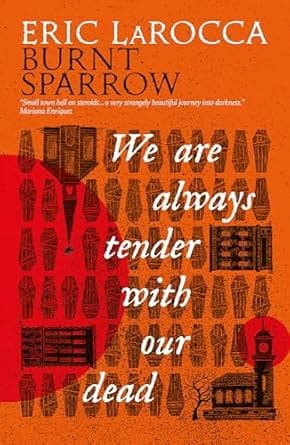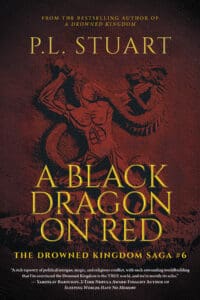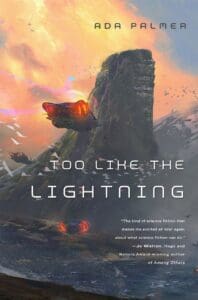
Synopsis:
The lives of those residing in the isolated town of Burnt Sparrow, New Hampshire, are forever altered after three faceless entities arrive on Christmas morning to perform a brutal act of violence—a senseless tragedy that can never be undone. While the townspeople grieve their losses and grapple with the aftermath of the attack, a young teenage boy named Rupert Cromwell is forced to confront the painful realities of his family situation. Once relationships become intertwined and more carnage ensues as a result of the massacre, the town residents quickly learn that true retribution is futile, cruelty is earned, and certain thresholds must never be crossed no matter what.
Engrossing, atmospheric, and unsettling, this is a devastating story of a small New England community rocked by an unforgivable act of violence. Writing with visceral intensity and profound eloquence, LaRocca journeys deep into the dark heart of Burnt Sparrow, leaving you chilled to the bone and wanting more.
Review:
Exquisitely repulsive, Eric LaRocca’s upcoming “We Are Always Tender With Our Dead,” is not to be read but endured. I don’t say this to be insulting, but complimentary, for to provoke, disgust and challenge, is its singular mission, and in that, it excels. This review will be pretty consistently oxymoronic, so you’ll have to bear with me.
The town of “Burnt Sparrow,” with its bizarre customs and warped justice system is not one in which readers can breathe freely. The most visceral, claustrophobic reading experience I think I have ever had, Larocca’s latest is a slow constriction, a wholly, intensely unpleasant time. It’s vile but tender, there’s an awful, rancid grace to it, real shimmering beauty behind the agony. Out September 9th from Titan, “We Are Always Tender With Our Dead,” is the harrowing first instalment in what promises to be an equally harrowing trilogy, and frankly, I did not enjoy it… I wasn’t meant to, but that being said, I will return to Burnt Sparrow (in September 2026 I believe), ready and willing to be wounded again.
On December 27th 2003 Rupert Cromwell is rudely awoken by his father at 5:43 AM. They have work to do. Two days earlier, Christmas day (which actually makes this the new Die Hard of horror literature) a faceless family, mum, dad and son, carried out a massacre on the Main Street of Burnt Sparrow, New Hampshire. Anywhere would find such an act of violence a shock to the system, but Burnt Sparrow is not quite like anywhere else, and in order to grieve, decide to maintain the aftermath. Employed as “preservers,” Rupert and Edmond are to watch over the desecrated bodies littering main street. Meanwhile, the faceless family are held in the basement of “End House,” and at the hand of Cyril Esherwood are subjected to a violent brand of justice.
“We Are Always Tender With Our Dead,” is, perhaps primarily, a grisly manifestation of the unresolved. The idea of “preserving,” is one that feels like a nasty cocktail of salt and lemon juice and hand sanitiser that Burnt Sparrow’s higher ups are massaging directly into the wound of the massacre. Grief is a terrible, but generally finite, thing, and whilst at first it stings, it usually scabs over, leaving behind (hopefully) a softened ache, pleasant memories and the resigned knowledge that whoever we’ve lost is at peace. I’m sure I don’t have to tell you that that doesn’t happen here. We see the consequences of unresolved grief, most notably in Edmond, Rupert’s father, who has lost his wife, and it’s sickening to read. This too applies to trauma, and whilst I won’t get into it, to avoid spoilers and reopening a can of worms that I’ve only just fished out of my brain. LaRocca demonstrates that things we bury, grief, trauma, desire, when left to stagnate can mutate and calcify and metastasize into something far darker.
Of course the idea of repression, of secrecy, which we just established to be trouble, are attributes of any small town in America, but nowhere are they more potent than in Burnt Sparrow. I’m not exaggerating when I tell you that when I was reading this book, I felt like I was doing so with a weight on my chest. Almost immediately LaRocca crafts this unbelievably drab, stuffy, bleak atmosphere. The walls are not only there but they are thick and damp and closing in. It’s truly a testament to their writing, albeit incredibly distressing for us. Burnt Sparrow has the reader and its cast in its grip. In this novel there’s a recurring motif of birds and feathers. Conventionally, one might think that this symbolises freedom, liberation, the ability to fly away and leave it all behind. Here though, I believe they represent quite the opposite. Entrapment and captivity. In Burnt Sparrow wings are clipped. We, the morbidly curious, can’t put the damn book down even as it constricts, poor Rupert Cromwell is yearning to leave, and even those brutalised on Christmas day, have not escaped. Burnt Sparrow does not let go of its secrets, its twisted values, or its dead.
Packed full of disturbing imagery, rendered with a perverse beauty that only Eric LaRocca can conjure, “We Are Always Tender With Our Dead,” also meditates upon identity and esteem, class and reputation, storytelling and liminality. Whilst rich in theme, prose and atmosphere, LaRocca offers no semblance of comfort, reprieve or mercy, and is not sorry for it. This novel is brutal, sickening and depraved, and I’d do it all over again.










Leave a Reply